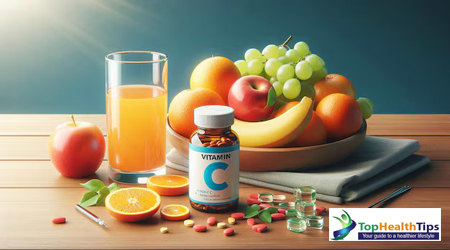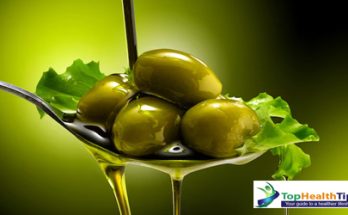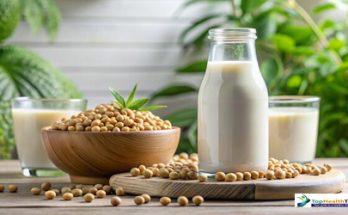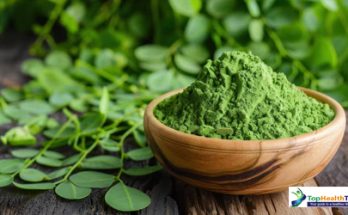Why Vitamins Matter ?
Vitamins are essential nutrients that our bodies need to function correctly. They help regulate metabolic processes, support energy production, and maintain overall health. Thus, they can significantly influence weight loss efforts. Let’s explore how different vitamins impact your weight management goals.
Key Vitamins That Support Weight Loss
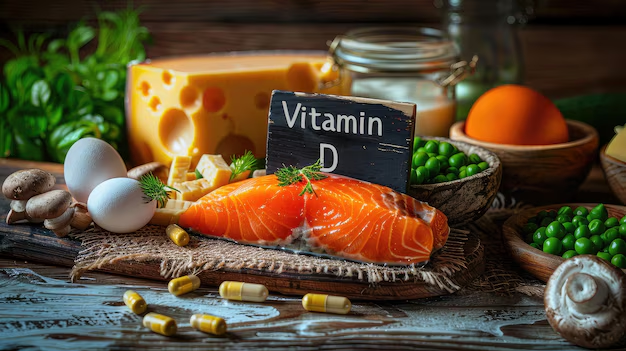
1. Vitamin D: More Than Just Sunshine
Vitamin D, often known as the “sunshine vitamin,” is crucial for more than just bone health. Research indicates that it also plays a role in regulating fat storage. Here’s how it helps:
- Supports Metabolism: Vitamin D can help maintain a healthy metabolism, which is essential for burning calories efficiently.
- Boosts Mood and Energy: Adequate vitamin D levels can improve mood and energy, encouraging physical activity, which is vital for weight loss.
Here are the top 5 foods that are excellent sources of vitamin D3, with precise information on their content:
- Cod Liver Oil:
- Content: 1 tablespoon (14 grams) provides approximately 1,360 IU of vitamin D3.
- Note: Cod liver oil is one of the most concentrated sources of vitamin D3.
- Salmon:
- Content: 3.5 ounces (100 grams) of cooked wild-caught salmon provides about 570 IU of vitamin D3. Farmed salmon typically contains slightly more, around 800 IU per 3.5 ounces.
- Mackerel:
- Content: 3.5 ounces (100 grams) of cooked mackerel provides around 360 IU of vitamin D3.
- Sardines:
- Content: 3.5 ounces (100 grams) of canned sardines (in oil) provide approximately 270 IU of vitamin D3.
- Fortified Milk:
- Content: 1 cup (240 ml) of fortified cow’s milk typically contains about 100 IU of vitamin D3.
These foods can help you meet your vitamin D3 needs, especially if combined with other dietary sources and adequate sunlight exposure.
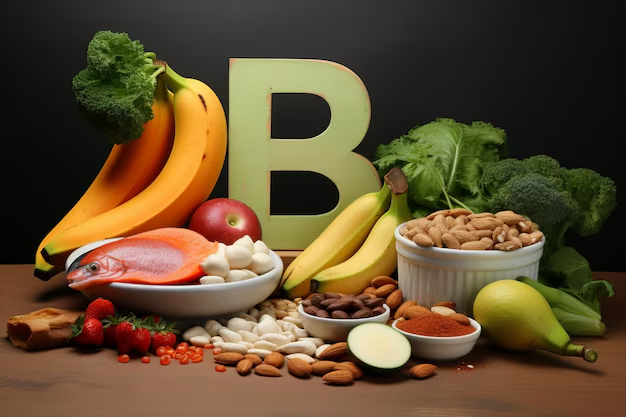
2. B Vitamins: The Energy Boosters
The B vitamin complex includes several essential nutrients, such as B6, B12, and folate, which are critical for energy production and metabolism.
- Energy Conversion: B vitamins help convert food into energy, which can support an active lifestyle.
- Fat Metabolism: They play a role in breaking down fats and proteins, aiding in effective weight management.
Here are the top 5 food sources for vitamin B6, vitamin B12, and folate, along with their approximate content:
Vitamin B6 (Pyridoxine)
- Chickpeas:
- Content: 1 cup (164 grams) of cooked chickpeas provides approximately 1.1 mg of vitamin B6.
- Salmon:
- Content: 3.5 ounces (100 grams) of cooked wild-caught salmon contains around 0.8 mg of vitamin B6.
- Potatoes:
- Content: 1 medium (173 grams) baked potato with skin provides about 0.7 mg of vitamin B6.
- Bananas:
- Content: 1 medium banana (118 grams) provides approximately 0.4 mg of vitamin B6.
- Turkey Breast:
- Content: 3.5 ounces (100 grams) of cooked turkey breast contains about 0.6 mg of vitamin B6.
Vitamin B12 (Cobalamin)
- Clams:
- Content: 3.5 ounces (100 grams) of cooked clams provide approximately 84 µg (micrograms) of vitamin B12.
- Liver (Beef):
- Content: 3.5 ounces (100 grams) of beef liver provides around 70 µg of vitamin B12.
- Salmon:
- Content: 3.5 ounces (100 grams) of cooked salmon contains about 3.2 µg of vitamin B12.
- Tuna (Canned):
- Content: 3.5 ounces (100 grams) of canned tuna provides approximately 2.2 µg of vitamin B12.
- Fortified Nutritional Yeast:
- Content: 1 tablespoon (about 15 grams) of fortified nutritional yeast provides around 8 µg of vitamin B12.
Folate (Vitamin B9)
- Liver (Beef):
- Content: 3.5 ounces (100 grams) of beef liver provides about 290 µg of folate.
- Spinach:
- Content: 1 cup (180 grams) of cooked spinach contains approximately 263 µg of folate.
- Lentils:
- Content: 1 cup (198 grams) of cooked lentils provides around 358 µg of folate.
- Asparagus:
- Content: 1 cup (180 grams) of cooked asparagus contains about 262 µg of folate.
- Fortified Cereals:
- Content: 1 cup (30 grams) of fortified cereal can provide about 100-400 µg of folate, depending on the brand and fortification level.
Teats, eggs, and legumes. These foods are rich in B vitamins and support your weight loss efforts.

3. Vitamin C: More Than Just Immune Support
Vitamin C is well-known for its immune-boosting properties, but it also plays a role in weight loss:
- Antioxidant Protection: Vitamin C helps reduce oxidative stress and inflammation, which can affect metabolism and weight management.
- Enhances Iron Absorption: Improved iron absorption from plant-based sources helps maintain energy levels.
Here are the top 5 precise food sources of vitamin C, including the amount of vitamin C they provide per typical serving:
1. Guava
- Content: 1 cup (250 grams) of raw guava provides approximately 377 mg of vitamin C.
2. Red Bell Peppers
- Content: 1 cup (149 grams) of chopped raw red bell pepper provides around 190 mg of vitamin C.
3. Kiwi
- Content: 1 medium kiwi (about 76 grams) provides approximately 71 mg of vitamin C.
4. Strawberries
- Content: 1 cup (152 grams) of sliced strawberries provides about 89 mg of vitamin C.
5. Oranges
- Content: 1 medium orange (about 131 grams) provides approximately 70 mg of vitamin C.
These foods are excellent sources of vitamin C, providing substantial amounts to help meet daily nutritional needs.

4. Vitamin E: The Cell Protector
Vitamin E acts as a powerful antioxidant that protects cells from damage. This protection is crucial for overall health and metabolism:
- Cell Health: By protecting cells from oxidative damage, vitamin E supports metabolic processes.
- Immune Function: A healthy immune system helps maintain overall well-being, which is important during weight loss.
Here are the top 5 food sources of vitamin E, with precise amounts of vitamin E content per typical serving:
1. Wheat Germ Oil
- Content: 1 tablespoon (14 grams) of wheat germ oil provides approximately 20 mg of vitamin E.
2. Sunflower Seeds
- Content: 1 ounce (28 grams) of dry-roasted sunflower seeds contains about 7.4 mg of vitamin E.
3. Almonds
- Content: 1 ounce (28 grams) of almonds provides around 7.3 mg of vitamin E.
4. Spinach
- Content: 1 cup (180 grams) of cooked spinach provides approximately 6.7 mg of vitamin E.
5. Avocado
- Content: 1 medium avocado (about 150 grams) contains around 4.2 mg of vitamin E.
These foods are among the richest sources of vitamin E, which is essential for antioxidant protection and overall health.
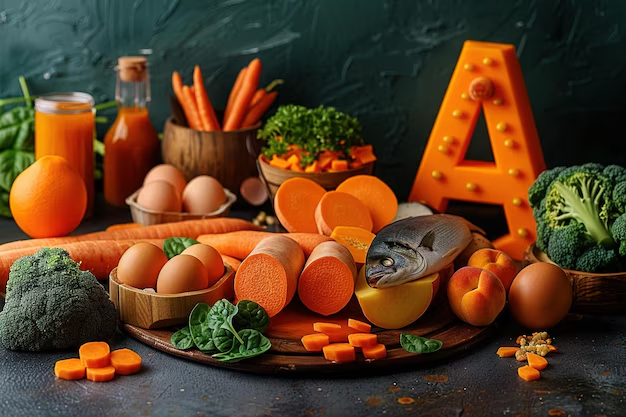
5. Vitamin A: Supporting Overall Health
Vitamin A is essential for vision, skin health, and immune function. It also contributes to weight management in several ways:
- Cell Growth: Supports the growth and repair of cells, including skin cells, which can be important during weight loss.
- Immune System: A robust immune system can better handle the demands of a weight loss regimen.
Certainly! Here are the top 5 food sources of vitamin A, along with their precise vitamin A content per typical serving:
1. Beef Liver
- Content: 3.5 ounces (100 grams) of cooked beef liver provides approximately 9,442 µg (micrograms) of vitamin A, primarily in the form of retinol.
2. Sweet Potatoes
- Content: 1 cup (200 grams) of cooked, mashed sweet potatoes provides around 1,096 µg of vitamin A (as beta-carotene).
3. Carrots
- Content: 1 cup (130 grams) of raw, chopped carrots provides about 509 µg of vitamin A (as beta-carotene).
4. Butternut Squash
- Content: 1 cup (205 grams) of cooked butternut squash provides approximately 1,144 µg of vitamin A (as beta-carotene).
5. Kale
- Content: 1 cup (130 grams) of cooked kale provides about 885 µg of vitamin A (as beta-carotene).
These foods are rich in vitamin A, essential for vision, immune function, and skin health.
Summery of Tips for Relation between Vitamins and weight loss.
- Vitamin D: Supports fat metabolism; maintain levels through sunlight or supplementation.
- B Vitamins: Boosts energy metabolism; include B6, B12, and folate.
- Vitamin C: Enhances metabolic function and iron absorption; consume through fruits and vegetables.
- Vitamin E: Provides antioxidant support; include nuts and seeds.
- Magnesium: Supports muscle function and metabolic health; found in nuts and leafy greens.
- Consult Healthcare Provider: Get personalized advice before using supplements.
- Combine with Healthy Lifestyle: Use vitamins alongside a balanced diet and regular exercise.
Conclusion
Incorporating the right vitamins into your diet can significantly impact your weight loss efforts. Vitamins such as D, B complex, C, E, and A play vital roles in supporting metabolism, energy levels, and overall health. By understanding and leveraging these nutrients, you can enhance your weight management strategies and work towards a healthier, leaner you.
Remember:
While vitamins are crucial, they should be part of a balanced diet and healthy lifestyle. Always consult with a healthcare provider before starting any new supplements or making significant changes to your diet.
Related post for Nutrition & Food>>>
References
- National Institutes of Health (NIH) – Office of Dietary Supplements
- Harvard T.H. Chan School of Public Health – Vitamins and Minerals
- Mayo Clinic – Nutrition and Healthy Eating

